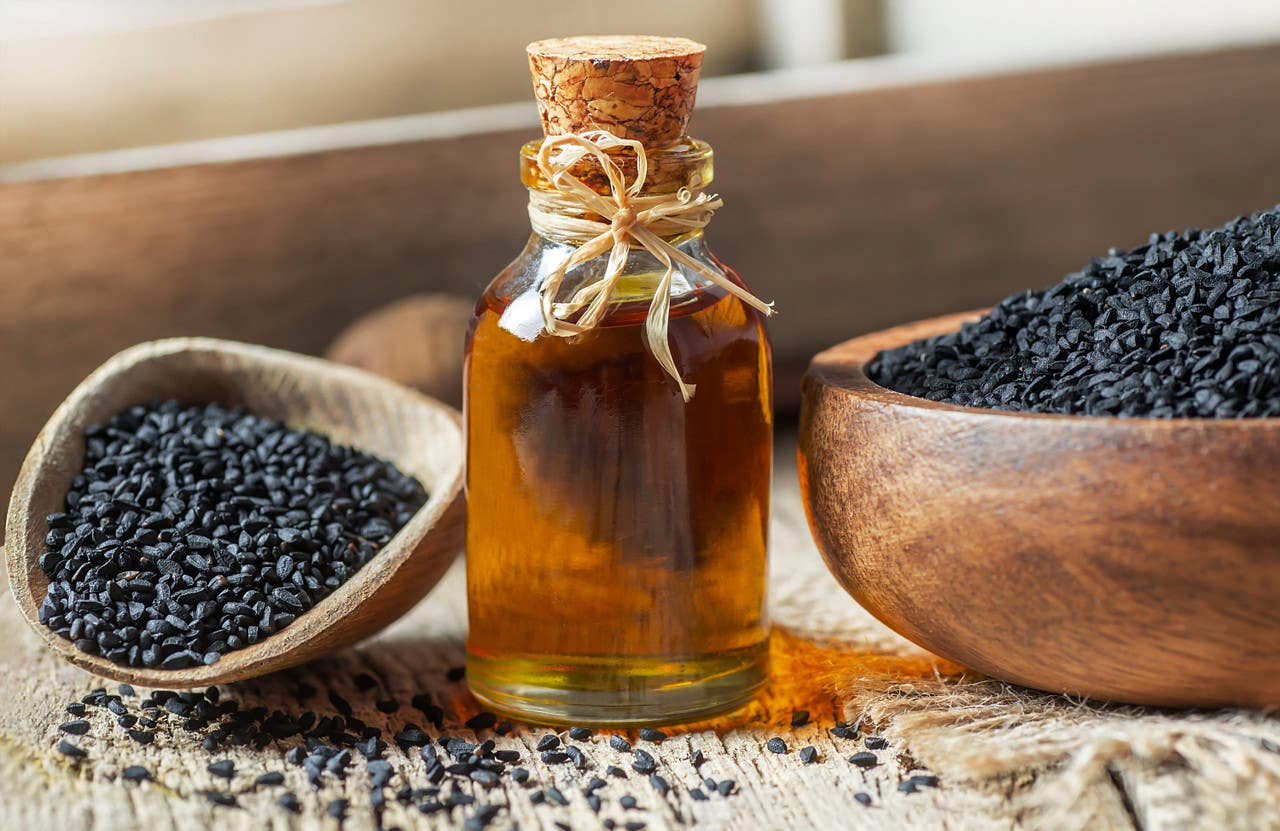Human clinical trials reveal anti-obesity and heart-protective effects of black cumin
New study links black cumin seed to better cholesterol and reduced fat cell growth without harming appetite.

 Edited By: Joseph Shavit
Edited By: Joseph Shavit

Clinical trial and lab study suggest that black cumin seed may help lower cholesterol and slow fat cell development while keeping appetite steady. (CREDIT: Wikimedia / CC BY-SA 4.0)
A simple seed that you may know from warm curries and Middle Eastern bread is drawing fresh attention from scientists. Black cumin, a spice used for centuries in traditional medicine, is showing early promise as a natural aid for people living with high cholesterol and weight concerns.
A team led by Associate Professor Akiko Kojima-Yuasa at Osaka Metropolitan University explored this seed in the lab and in a small clinical trial, hoping to understand how it might support metabolic health without dulling appetite or causing harm. What they found offers a blend of hope, caution and curiosity.
How Fat Cells Form
While research on obesity and cholesterol often focuses on either what you eat or how much you move, this study was looking at the moment when early fat cells decide to mature into fully formed fat cells. That moment, called adipogenesis, is controlled by genes that let the cell know whether it is time to begin storing fat or not. Once these genes turn on, the cells either fill with triglycerides, and therefore grow in size. This moment of growth contributes to obesity and problems with blood lipids
The Osaka group wanted to know if compounds in black cumin could interfere with this process. The seed contains both phenolic compounds and flavonoids, as well as essential oils. Among those compounds is thymoquinone, a molecule associated with antioxidant and anti-inflammatory effects.
Previous studies have suggested that the spice has beneficial effects on blood sugar levels, blood pressure, and inflammation. This new work was looking to see if those beneficial effects could extend to controlling lipids and hence fat formation.
The Chemistry Involved in the Seed
The researchers started with Indian Kalonji variety seeds, which were processed by cleaning, drying, and grinding. For the cellular assays, they prepared a methanolic extract. The chemical analyses showed the presence of high levels of phenolic and flavonoid compounds both of which are well-known for their antioxidant capacity.
Infrared spectroscopy indicated the presence of quinone groups and aromatic ring structures that are consistent with thymoquinone and other bioactive compounds. Using Gas chromatography, they also determined that the seed oil contained more than 20 fatty acids and the majority were unsaturated. One of the fatty acids, methyl eicosatrienoate, comprised nearly 70% of the fatty acid profile.
These chemical signatures provided the researchers with confidence that these metabolites were present in the extract and had a potential biological effect on fat metabolism.
What Happened in the Lab
To examine the effects of the extract on fat accumulation in vitro, the researchers used 3T3-L1 mouse preadipocytes, a common model of adipogenesis. They first confirmed that the extract was non-toxic at concentrations achieved at or below 250 micrograms/mL. At lower doses, 80 and 120 micrograms/mL, the extract decreased fat accumulation in the cells after an 8-day treatment with the extract. The highest dose reduced fat accumulation by nearly 40%.
The researchers also measured the activity of an enzyme called glycerol-3-phosphate dehydrogenase, an enzyme associated with the acquisition of intracellular triglycerides in preparing adipocytes to accumulate fat. When the fat cells were treated with the extract the activity of this enzyme decreased.
In the conducted gene expression anticipations, the extracts showed downregulation in key regulators of adipogenesis, including CCAAT/enhancer-binding protein-b (C/EBPβ), C/EBPα and peroxisome proliferator-activated receptor gamma (PPARγ). These genes are known master regulators to notify early fat cells to mature. They were acting more slowly, which indicated the extract was slowing down the fat droplets in early fat cells (2).
A Small Step into Human Trials
The study then moved toward a human clinic in Bangladesh. Forty-two adults, with borderline or higher cholesterol levels, and body mass indexes above 25, agreed to participate in an eight-week trial. None of the participants was taking medications for cholesterol. After random assignment into the control group or extract group (5 grams of black cumin seed powder/day for 8 weeks). The remaining 20 individuals will ultimately serve as the control group for comparing the lipid levels.
The participants went about their same routines and received the same lifestyle suggestions in both groups. Before the trial and after the trial, the team of researchers measured total cholesterol, low-density lipoprotein (LDL), high-density lipoprotein (HDL) and triglycerides. They asked participants about appetite using an appropriate eight-question scale to demonstrate appetite.
The results were straightforward and positive. Those consuming the fermented black cumin seed supplement exhibited notable changes in all the lipid measures. Total cholesterol dropped from approximately 218 mg/dl to approximately 202. The LDL levels dropped more than 14 mg/dl. There were declines in triglycerides, and modest rises in HDL levels. None of these changes occurred in the participants in the control group.
Appetite, an often dubious issue in weight interventions, remained stable in the average participant who consumed the black cumin seed powder adjunct. In fact, there was a slight increase in appetite scores in addition to other lipid changes. Certainly, no serious or otherwise additional side effects were reported.
Dr. Kojima-Yuasa stated, "It was certainly gratifying to see the black cumin seed deliver clear lipid-lowering effects in humans." However, she cautioned, "We need more studies for larger, longer trials, especially with insulin resistance and inflammation."
Why These Results Matter
People who have elevated cholesterol levels, and/or are concerned with weight, and/or have a family history of coronary heart disease, may have more of a personal connection with the discovered results from this introduced preclinical study.
In behavioral health, many people are searching for tools or alternatives that are more "natural" or "safe" when trying to lose weight, generally if they are trying to avoid medications that suppress appetite or have other side effects. Therefore, this study is an example of a possible new tool in the future for people with a more digestive health approach.
Nonetheless, there was a noted limitation of presumably not having a placebo, which can lead to biases. Further limitations include total measuring specifically about lipids and appetite, demonstrating that more layers and a person studying would provide a greater scope of research measurement ideas.
Other questions remain regarding intake times, short and long-term safety, rate of intake and subsequent medicine/medication across a population of humans with health concerns such as diabetes and managing weight issues like obesity and/or overweight. Nevertheless, this study is advantageous in linking a common spice found in most kitchens to a nutrition-based outcome for lipid changes.
Practical Implications of Research
Black cumin seed, if these areas of future studies pan out, could have some practical implications for introducing to people exploring managing cholesterol and weight in dietary approaches. It would point the way for a very acceptable adjunct to lower LDL levels, decrease triglycerides and promote healthier fat cell behavior.
These lipid changes may create other possibilities for nutrition-based treatment paths if possible with the plant or food.
Researchers aim to demonstrate whether ease-insulin is resistant or inflammatory, which is important for other people with diabetes and cardiovascular disease risk factors.
Research findings are available online in the journal Food Science & Nutrition.
Related Stories
- A spice found in most kitchens is key to greener, more efficient fuel cells
- Cinnamon can be harmful when combined with prescription drugs, study finds
- Spicy foods help people eat less, study finds
Like these kind of feel good stories? Get The Brighter Side of News' newsletter.
Mac Oliveau
Writer
Mac Oliveau is a Los Angeles–based science and technology journalist for The Brighter Side of News, an online publication focused on uplifting, transformative stories from around the globe. Passionate about spotlighting groundbreaking discoveries and innovations, Mac covers a broad spectrum of topics including medical breakthroughs, health and green tech. With a talent for making complex science clear and compelling, they connect readers to the advancements shaping a brighter, more hopeful future.



